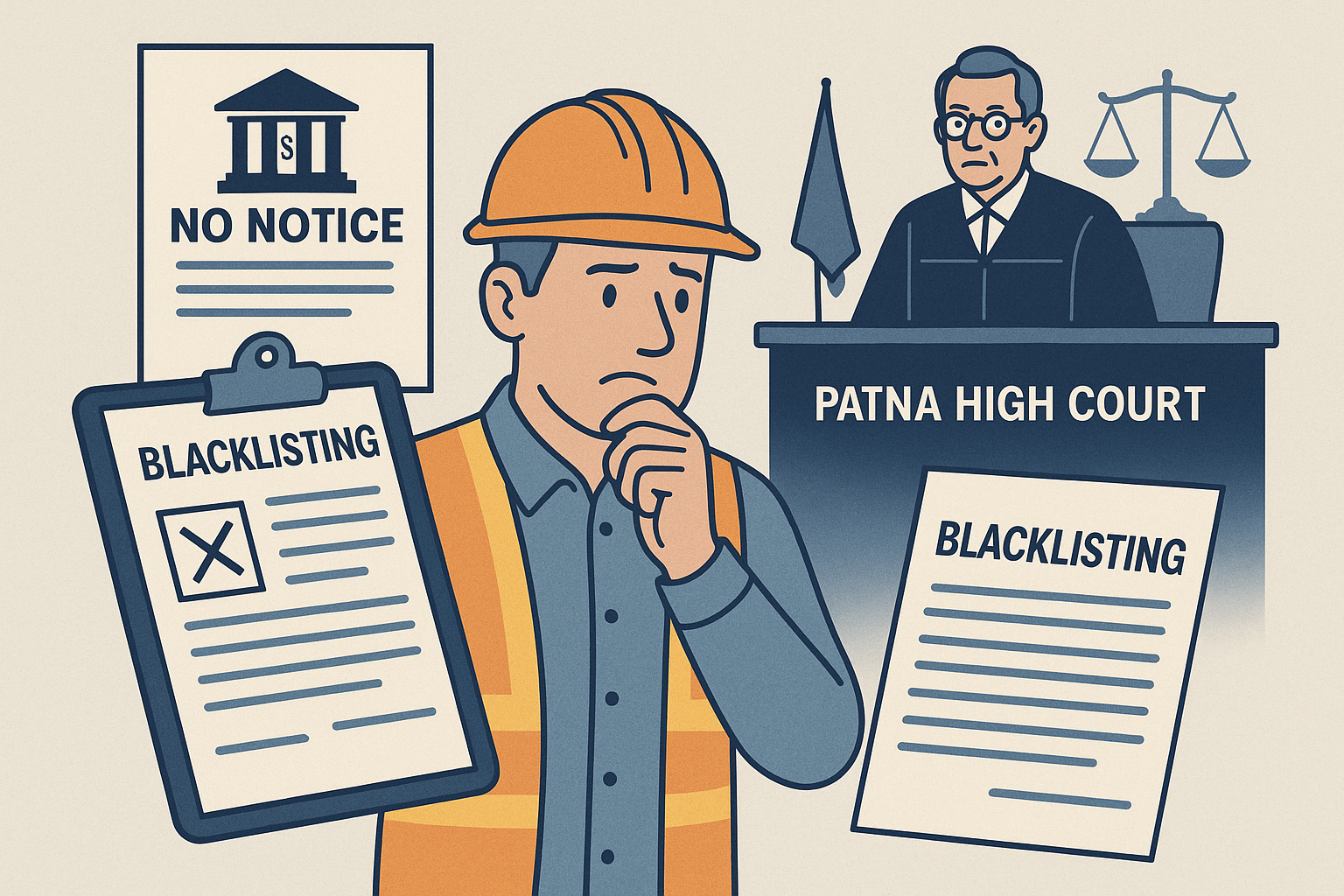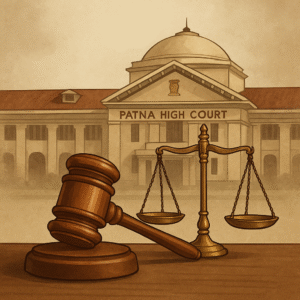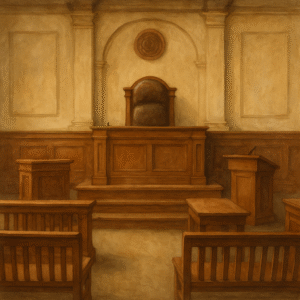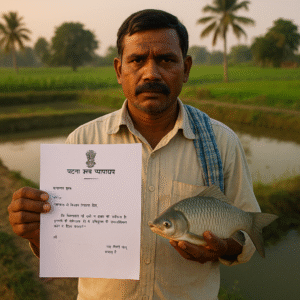The Patna High Court recently delivered an important judgment clarifying the procedural safeguards that must be observed before a contractor can be blacklisted by a government department. The Court held that blacklisting without serving a proper show-cause notice and without observing principles of natural justice is both procedurally and constitutionally defective. The decision reaffirms the judiciary’s role in protecting the rights of individuals from arbitrary administrative actions.
Simplified Explanation of the Judgment
In this case, the petitioner—a registered government contractor—challenged an order passed by the Engineer-in-Chief of the Rural Works Department, Government of Bihar. The department had blacklisted the petitioner for 10 years. The petitioner alleged that he was never served with any notice to explain why such action should not be taken against him, and that the punishment of blacklisting for a full decade was excessively harsh.
The High Court, presided over by the Hon’ble Chief Justice and Hon’ble Mr. Justice S. Kumar, agreed with the petitioner on two significant grounds:
- Violation of Principles of Natural Justice: The Court found that the petitioner had not been served a show-cause notice before the blacklisting order was passed. This omission was crucial because blacklisting can have severe civil consequences. It effectively prevents a person from entering into any business with the government, thereby affecting their livelihood and reputation. A mere claim by the government that a notice was sent through ordinary post did not suffice, especially in the absence of proof of delivery.
- Disproportionate Punishment: Even if some grounds existed to initiate proceedings, imposing a ten-year blacklist without hearing the affected party was held to be disproportionate. The Court underscored that any punishment, especially one with civil and reputational consequences, must not only be justified but also proportionate to the alleged misconduct.
The Court reiterated that in such cases, natural justice principles—especially the right to be heard—must be strictly followed. It emphasized that blacklisting a contractor without offering an opportunity to defend oneself is akin to denying constitutional protections under Article 14 (Right to Equality) and Article 21 (Right to Life and Personal Liberty).
To support its reasoning, the Court cited several Supreme Court judgments, including Gorkha Security Services v. Government of NCT of Delhi, which clearly lays down the necessity of issuing a proper show-cause notice before any blacklisting order is passed.
As a remedy, the Court set aside the impugned blacklisting order dated 20.09.2021. It directed the petitioner to appear before the authority on a fixed date to receive the show-cause notice (either the original or a new one), and instructed the department to proceed with a fresh decision within a fixed timeframe after considering the petitioner’s response.
Importantly, the Court also allowed the petitioner to participate in new government tenders until the matter is reconsidered. This interim relief ensures that the petitioner is not unfairly excluded from livelihood opportunities while the department reconsiders the case.
Significance or Implication of the Judgment
This judgment has broad implications for contractors and suppliers working with government departments. It establishes that:
- Government departments must follow fair procedure before taking punitive steps like blacklisting.
- Contractors are entitled to proper notice and a chance to be heard, failing which the order becomes unconstitutional.
- Punishments must be proportionate, and arbitrary long-term exclusions will not be tolerated by the courts.
The ruling promotes accountability in government decision-making and protects individuals from administrative overreach. It is particularly relevant for departments across Bihar and India, where such actions can often be taken without due process.
Legal Issue(s) Decided and the Court’s Decision with Reasoning
- Was the petitioner given a proper show-cause notice before blacklisting?
- No. The Court found no evidence that notice was served. Sending it via ordinary post without acknowledgment was insufficient.
- Was the punishment of a 10-year blacklist proportionate?
- No. The Court deemed it excessively harsh without any hearing or examination of the specific misconduct.
- What procedural safeguards are necessary before blacklisting?
- The Court emphasized:
- Proper service of notice by registered/speed post.
- A reasonable opportunity to respond.
- Consideration of the reply before passing an order.
- A reasoned decision that can be challenged if necessary.
- The Court emphasized:
Judgments Referred by Parties
- State of Orissa v. Balram Sahu, (2009) 2 SCC 652
- Patel Engineering Ltd. v. Union of India, (2012) 11 SCC 257
- Gorkha Security Services v. Government (NCT of Delhi), (2014) 9 SCC 105
- Kulja Industries Ltd. v. Chief General Manager, Western Telecom Project BSNL, (2014) 14 SCC 731
Judgments Relied Upon or Cited by Court
- Vetindia Pharmaceuticals Ltd. v. State of Uttar Pradesh, (2021) 1 SCC 804
- Natwar Singh v. Director of Enforcement, (2004) 13 SCC 255
- SEBI v. Akshaya Infrastructure Pvt. Ltd., (2014) 11 SCC 112
- H.L. Trehan v. Union of India, (1989) 1 SCC 764
Case Title
Jai Bajrang Bali Construction v. State of Bihar & Ors.
Case Number
Civil Writ Jurisdiction Case No.19449 of 2021
Coram and Names of Judges
Hon’ble the Chief Justice Sanjay Karol
Hon’ble Mr. Justice S. Kumar
Names of Advocates and Who They Appeared For
- Mr. Abhishek Kumar — Advocate for the Petitioner
- Mrs. Archana Meenakshee — Advocate for the Respondents
Link to Judgment
If you found this explanation helpful and wish to stay informed about how legal developments may affect your rights in Bihar, you may consider following Samvida Law Associates for more updates.








